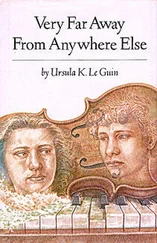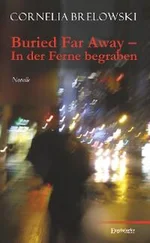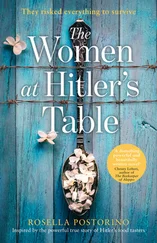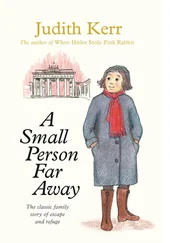The whole family left the next morning.
“I’m afraid we’ve lost Herr Zwirn some customers,” said Papa.
Mama was triumphant.
“But it seems such a pity,” said Anna. “I’m sure that boy really liked us.”
Max shook his head. “He didn’t like us any more at the end,” he said. “Not by the time his mother had finished with him.”
It was true, thought Anna. She wondered what the German boy was thinking now, what his mother had told him about her and Max, and what he would be like when he grew up.
Chapter Ten 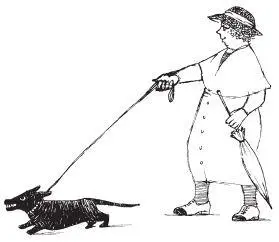
Just before the end of the summer holidays Papa went to Paris. There were so many German refugees living there now that they had started their own newspaper. It was called the Daily Parisian and some of the articles Papa had written in Zurich had appeared in it. Now the editor wanted him to write for the paper on a more regular basis. Papa thought that if it worked out they might all go to Paris to live.
The day after he left Omama arrived. She was the children’s grandmother and had come on a visit from the South of France.
“How funny,” said Anna. “Omama might pass Papa in the train. They could wave to each other!”
“They wouldn’t, though,” said Max. “They don’t get on.”
“Why not?” asked Anna. It was true, now she came to think of it, that Omama only came to see them when Papa was away.
“One of those family things,” said Max in an irritating would-be-grown-up voice. “She didn’t want Mama and Papa to marry each other.”
“Well, it’s a bit late now!” said Anna with a giggle.
Anna was out playing with Vreneli when Omama arrived, but she knew at once that she had come because of the hysterical barking that issued from an open window of the inn. Omama never moved without her dachschund Pumpel. She followed the sound and found Omama with Mama.
“Darling Anna!” cried Omama. “How lovely to see you!” and she hugged Anna to her stout bosom. After a moment Anna thought the hug must be finished and wriggled, but Omama held on tight and hugged her a bit more. Anna remembered that Omama had always done this.
“It’s been such a long time!” cried Omama. “That dreadful man Hitler …!” Her eyes, which were blue like Mama’s but much paler, filled with tears and her chins – there were two – trembled gently. It was difficult to hear exactly what she was saying because of Pumpel’s noise. Only a few phrases like “torn from our homes” and “breaking up families” emerged above the frantic barks.
“What’s the matter with Pumpel?” asked Anna.
“Oh, Pumpel, my poor Pumpel! Just look at him!” cried Omama.
Anna had been looking at him. He was behaving very strangely. His brown hindquarters stuck straight into the air and he kept flattening his head on his front paws as though he were bowing. Between bows he gazed beseechingly at something above Omama’s wash basin. Since Pumpel was the same tubby shape as Omama the whole operation was very difficult for him.
“What does he want?” asked Anna.
“He’s begging,” said Omama. “Isn’t he sweet? He’s begging for that electric light bulb. Oh, but Pumpel, my darling Pumpel, I can’t give it to you!”
Anna looked. Above the basin was a perfectly ordinary round bulb, painted white. It seemed an eccentric thing even for Pumpel to wish for.
“Why does he want it?” she asked.
“Well, of course he doesn’t realize it’s a bulb,” Omama explained patiently. “He thinks it’s a tennis ball and he wants me to throw it for him.”
Pumpel, sensing that his needs were at last being taken seriously, bowed and barked with redoubled vigour.
Anna laughed. “Poor Pumpel,” she said and tried to stroke him – but he immediately snapped at her hand with his yellow teeth. She withdrew it quickly.
“We could unscrew the bulb,” said Mama, but it was stuck fast in its socket and would not be moved.
“Perhaps if we had a real tennis ball …” said Omama, searching for her purse. “Anna darling, would you mind? I think the shops are still open.”
“Tennis balls are quite expensive,” said Anna. She had once wanted to buy one with her pocket money but had not had nearly enough.
“It doesn’t matter,” said Omama, “I can’t leave poor Pumpel like this – he’ll exhaust himself.”
But when Anna returned Pumpel had lost interest in the whole business. He was lying on the floor growling, and when Anna placed the ball gingerly between his paws he gave it a look of utter loathing and sank his teeth straight into it. The tennis ball expired with a sigh. Pumpel got up, scratched the floor twice with his hind feet, and retired under the bed.
“He really is a horrible dog,” Anna later told Max. “I don’t know how Omama puts up with him.”
“I wish we had the money for the tennis ball,” said Max. “We could use it at the fair.”
There was a fair coming to the village – an annual event which the local children were very excited about. Franz and Vreneli had been saving up their pocket money for months. Somehow Anna and Max had only just heard about it, and as they had no savings they did not see how they could go. Their combined assets would just about pay for one ride on the roundabout – and that, said Anna, would be worse than not going at all.
She had thought briefly of asking Mama for some money. This was after her first day back at school when no one had talked about anything except the fair and how much money they would have to spend. But Max had reminded her that Mama was trying to economize. If they were going to live in Paris they would need every penny for the move.
Meanwhile Pumpel, though no one could call him lovable, made life a lot more interesting. He had no sense at all. Even Omama, who was used to his ways, was surprised. When she took him on a steamer he made straight for the side and was only restrained with difficulty from throwing himself overboard. The next time she wanted to go to Zurich she tried to take him on the train, but he refused to get on it. However, as soon as the train pulled out of the station, leaving Omama and Pumpel on the platform, he tore himself free from his lead and pursued it, barking wildly, right down the line to the next village. He was brought back exhausted an hour later by a small boy and had to rest for the remainder of the day.
“Do you think there’s something wrong with his eyesight?” asked Omama.
“Nonsense, Mother,” said Mama who felt she had more important worries, what with possibly moving to Paris and having no money. “Anyway, even if there is you can’t buy him spectacles!”
It was a shame because Omama, in spite of being silly about Pumpel, was really very kind. She too was a refugee but her husband was not famous like Papa. They had been able to move all their belongings out of Germany and now lived comfortably by the Mediterranean. Unlike Mama, she did not have to economize, and often devised little treats which Mama would not normally have been able to afford.
“I suppose we couldn’t ask Omama to give us some money for the fair?” said Anna one day after Omama had bought them all éclairs at the local cake shop.
Max was horrified. “Anna! We couldn’t!” he said quite sharply.
Anna had known really that they couldn’t – only it was so tempting. The fair was only about a week away.
A few days before Omama was due to travel back to the South of France, Pumpel disappeared. He had escaped from Omama’s room early in the morning and she had thought nothing of it. He often went for a sniff round the lake and usually came back quite quickly of his own accord. But by breakfast time he was still missing and she began to ask people whether they had seen him.
Читать дальше


